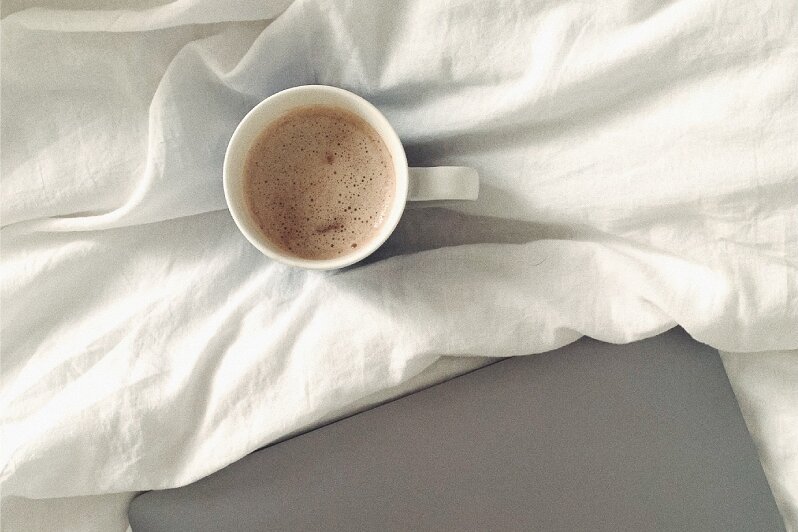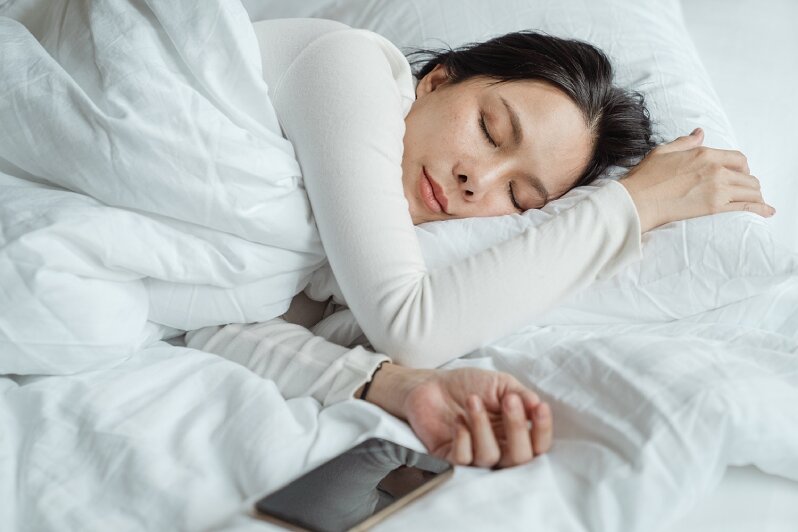Find it hard to doze off at night? If you're not diagnosed by a doctor with insomnia, your lifestyle habits may be the culprit for your sleepless nights. Here's how you can sleep faster at night, from limiting your caffeine intake and trying the US military’s relaxation method.
Tip #1: Reduce the caffeine, alcohol, and nicotine

These substances will not help you sleep better.
It goes without saying, but caffeine can really impact your sleep quality and how fast you can fall asleep. Caffeine blocks the adenosine receptors in your brain. Adenosine is the sleep hormone that tells your body that it's time to doze off. So drinking caffeinated beverages too close to bedtime can stimulate the central nervous system and put off your trip to dreamland for several hours.
Alcohol, on the other hand, raises your epinephrine levels. It's the stress hormone that increases the heart rate and stimulates your body in preparation for fight or flight mode.
If you're a heavy smoker, nicotine can also prevent you from falling asleep quickly since it's a stimulant. In fact, there are studies that prove that smoking is directly associated with greater insomnia and shorter sleep duration.
Tip #2: Time your naps

Stick to power naps so you can actually sleep through the night.
If you have time to nap within the day, you should try your best to keep it to 30 minutes or less, 90 minutes at maximum. Longer naps can disrupt your circadian rhythm or the body's natural sleep cycle. You should also avoid taking naps too close to the evening as this can prevent you from falling asleep at the right time.
Tip #3: Sleep in a quiet, dark, and cool environment
Light sleepers can attest that the slightest discomfort can prevent you from having a good night's sleep. If you want to sleep faster, you should make your room comfortable and optimal for sleeping. This includes reducing any noise makers, turning the fan or airconditioning on to prevent getting too hot or cold in the middle of the night, and limiting any light source. If you sleep during the day due to work, invest in some blackout curtains so your room stays as dark as possible while you slumber.
It's also a good idea to remove any electronic devices from your room, such as a television, radio, computer, and even your phone, to prevent the temptation to watch or scroll through social media before bed.

Make your room optimised for sleeping.
Tip #4: Leave the bedroom if you can't sleep
It sounds counter-intuitive, but it helps trick your brain into associating the bedroom with sleeping. If you've been tossing and turning for 20 minutes and are still unable to fall asleep, leave the bedroom and go relax in another area of the house. Once you're starting to feel drowsy, that's the only time you should go back into your bedroom.
Tip #5: Try the US military's relaxation method
The US military has this routine where soldiers methodically relax their bodies from head to toe in preparation for sleep. It's both a physical and mental exercise. Start by getting into a comfortable sleeping position. Then, consciously try to relax the muscles in your face, from your forehead to your eyelids, nose, and mouth. Take deep, even breaths. Move down to your neck, shoulders, arms, chest, stomach, thighs, legs, and feet.
While doing so, help your mind relax by visualising a peaceful, quiet setting. Don't let intrusive thoughts, such as tomorrow's tasks or schedule, distract you. Keep repeating the phrase "Don't think" to help your mind focus on easing into sleep.
These methods can help fall you fall asleep faster. But if these don't work, it's better to consult your doctor for help.
You can also try guided meditation to help relieve your mind.
Comments, questions or feedback? Email us at [email protected].



.jpg)